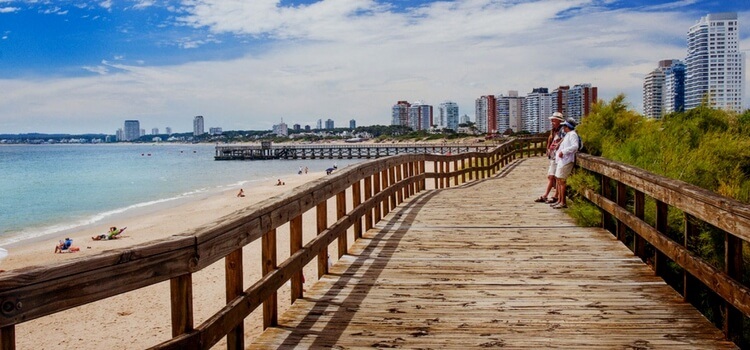The Forbes reporter who interviewed me this week wanted me to give it to him straight.
“Living or retiring overseas,” he began, “is an exciting idea on the surface… but there must be downsides.
“What are the biggest concerns people have after making a move to another country, once the honeymoon is over?” he wanted to know.“I can think of two,” I told him…
The first big-deal distress that can take hold after settling into a new home in a foreign place is missing family and friends, especially children and grandchildren, back in the place where you came from.

If you’re used to being a regular part of your grandkids’ lives, breaking that connection will hurt.
You have more good options for addressing this risk today than ever. FaceTime, Skype, and video chat technology make it possible to “see” your kids and grandkids everyday if you want.
Of course, FaceTiming with your 4-year-old grandson is not the same as bouncing him on your knee, but it can make the separation easier to deal with.
If you have children or grandchildren in your life who you want to keep in your life after you’ve relocated your life to a new country, make sure you include a generous travel allotment in your budget. Build in the cost of visiting them and of having them come to visit you and then make those visits count.

What a great opportunity for your grandchild to spend two months each summer with you in your new home at the beach or in Old World Europe, for example.
The second real-life practical issue associated with moving overseas is aging overseas.
Say you’re 55, and your spouse is 62. The two of you retire this year to Panama.
You love your new life in the hills outside Boquete. The wildflower-filled countryside makes for lovely views from your window and back porch. Your new neighbors welcome you into their community. You become involved and connected, volunteering at a local school. The affordable cost of living means you’re able to travel often…
Life is good.
Fast forward 10 years, and your spouse, now 72, has a stroke. He’s unable to get around and can’t be left on his own.
At 65, you’re still healthy but beginning to slow down…
And you have a choice to make.
Are you going to carry on living in the relatively remote region of Panama where you and your husband have made a new life for yourselves, realizing that, as the years pass, it will become harder and harder for you to take care of your husband and yourself without the support of family…

Or are you going to return to your family?
This is a real-life example, the story of a couple of friends who retired to Panama a decade ago. Last year, the husband had a stroke… and the wife faced a very difficult decision.
She could have hired in-home help, which is a bargain in Panama compared with the cost of that kind of nursing support in the States.
But she chose to take her husband back to the Midwest, where her children and grandchildren are living.
“I feel like I’m letting my husband down,” she told me after she’d made her mind up to return to the United States.
“It was my dream but his, too, to live here in Panama as we have been. And he’s loved it here. We both have…
“I’m afraid I’m failing him, but I think I need to get us both back close to our family.”
“You aren’t failing your husband,” I told her. “And you aren’t failing yourself.
“You aren’t failing at all!
“You and your husband have had a grand adventure… a decade of extraordinary experiences and new friendships that you’ll cherish for the rest of your lives.”

Retiring overseas doesn’t have to be a one-way trip. You can always go back.
And going back isn’t giving up. It’s simply the start of a next phase.
Two practical comments on this topic.
First, this is why we recommend that you keep Medicare when living or retiring overseas. Think of it as a backup plan. Should you decide at any point in the future… even many years down the line… that you’d like to return home to take advantage of family support and U.S. health care, you’ll be glad you’ve kept up your Medicare payments.

Second, I believe that it won’t be too many years before you’ll have another option for growing older overseas.
In the early 1980s, developers in locations attracting attention from foreign retirees and expats began building products specifically for that market. Today, across Latin America and the Caribbean, especially, you find gated communities conceived and developed for North American buyers.
Now developers are realizing a new product opportunity—private communities for that market that incorporate age-in-place and assisted-living facilities.
Such communities are being built in Bogotá and Medellín, Colombia, for example, and I know developers planning such projects in Panama and Nicaragua.
Not everyone who moves overseas wants to move back to wherever he came from when he needs a little help managing day-to-day living… and not everyone has family to return to.
I don’t believe this growing market niche will remain unaddressed much longer.
Kathleen Peddicord
